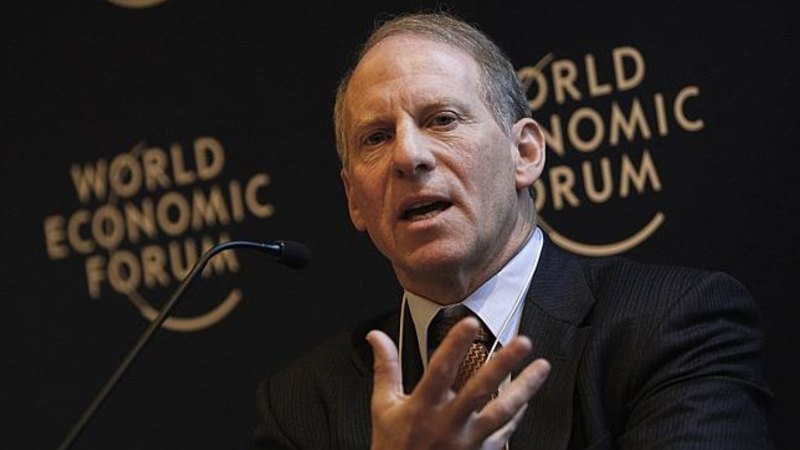Save articles for later
Add articles to your saved list and come back to them any time.
Delphi, Greece: One of the United States’ most experienced diplomats says AUKUS is likely to prosper if former president Donald Trump is re-elected.
The comments were made to the Delphi Economic Forum, under way in Greece, by Richard Haass, who served former president George W. Bush and former secretary of state Colin Powell, and is now the outgoing head of the non-aligned Council of Foreign Relations.
Richard Haass has worked for four US presidents and one secretary of state, and was US envoy to the Northern Ireland peace process.Credit: Bloomberg
Trump is firming as favourite to win the Republican nomination in a second election contest between the former president and incumbent Joe Biden. Biden beat Trump in 2020 and announced this week that he will seek a second term in 2024.
US foreign policy was erratic and often isolationist during Trump’s chaotic time in office when he pursued an “America First” strategy, prompting questions to Australia’s Prime Minister Anthony Albanese about whether the deal would be safe if Trump was back in charge. Albanese said the bilateral relationship was one between nations, not leaders.
Asked by this masthead if a re-elected Trump would pose any threat to the deal to supply Australia with nuclear-powered submarines, Haass said that was unlikely.
“I don’t think it would be particularly problematic in the sense that one of the, I would argue, contributions of the Trump foreign policy was to introduce a more realistic assessment of China,” Haass said.
“I think there [were] many high expectations across multiple administrations that integration of China would happen successfully, this goes back over two-and-a-half decades, and that China would become more open politically, more market-oriented economically and more moderate in its foreign policy.
“And as has come to pass, needless to say, we now have something of a consensus that’s more sceptical of China [and] more willing to push back against it.
“And I would think that arrangements like AUKUS are consistent with that … I would think that arrangements like that would be likely to continue and to even prosper regardless [of who is in the Oval Office.]”
AUKUS was struck by former prime ministers Scott Morrison, Britain’s Boris Johnson and Biden and caused dismay in the Elysee Palace. French President Emmanuel Macron accused Morrison of lying to him over the now-aborted contract for France’s Naval Group to supply Australia with diesel submarines.
But Macron’s own commitment to the Indo-Pacific has come under question recently following his trip to Beijing. On the way home he said Europe should strike “strategic autonomy” from the United States and avoid getting dragged into a conflict between the US and China over Taiwan. Chinese President Xi Jinping has threatened to take over the self-ruled democratic island using military force if necessary.
The head of the US Air Mobility Command, Mike Minihan, has been quoted in a leaked memo as saying the US could be at war with China as soon as 2025.
But Haass said there was no inevitability to a hot war in the Taiwan Strait, despite escalating tensions between the two superpowers. He said deterring conflict would take enormous statecraft by both sides.
“Nothing’s inevitable […] I don’t believe anything’s inevitable with Taiwan,” he said.
“I worked for four presidents; Carter, Reagan, Bush and Bush, the idea that anything is inevitable is impossible.
“It’s a challenge to American and Chinese statecraft and we’ll see how it plays out.”
Haass, who was involved in the peace process in Northern Ireland, said a conflict over Taiwan would have enormous effects on Europe and he hoped Europe would come to a position where it continued “normal trade” with China but quarantined technology and strategic industries.
This is the model advocated by European Commission President Ursula von der Leyen.
He said the positive emergence of Japan and Germany from their World War II postures was the defining change of the disruption to the world order currently taking place.
“We’re finally beginning to see the emergence of a post-post World War II where both of these countries are becoming more normal in their willingness and ability to take on larger security obligations and responsibility.
“It’s an under-appreciated development.”
Get a note directly from our foreign correspondents on what’s making headlines around the world. Sign up for the weekly What in the World newsletter here.
Most Viewed in World
From our partners
Source: Read Full Article


